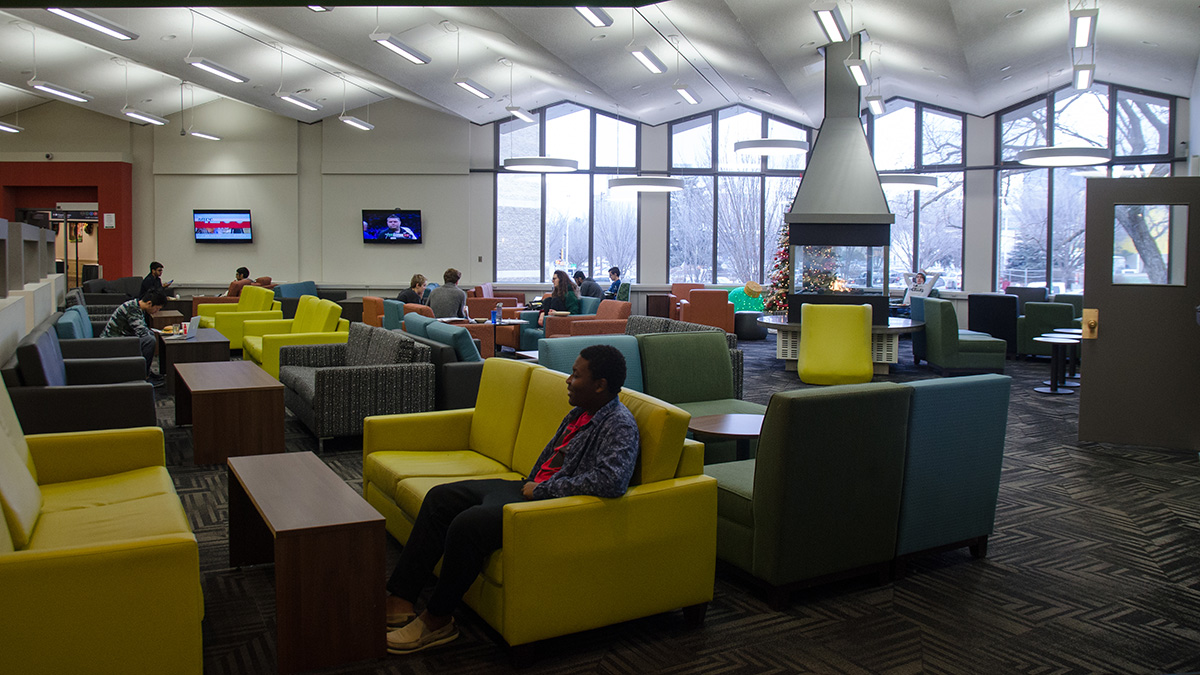All-you-can-eat meal plan proposed for Lister once again
 Zoe Joyall
Zoe JoyallAn all-you-can-eat meal plan is once again being proposed for Lister, and once again, student consultation has overwhelmingly shown that Lister residents are against it.
A committee of the Board of Governors will be voting on the new meal plan on February 27. The proposed meal plan will require Lister residents to purchase one of two all-you-can-eat plans priced at $4,400 or $4,900. The plan would come into effect in September 2018 and replace the current declining balance model, where meal plan money works similarly to a debit card and costs $4,317 or $4,782. A similar all-you-can-eat plan was proposed last year but was ultimately voted down by the Board of Governors.
At a Students’ Council meeting on February 6, Students’ Union vice-president (student life) Ilya Ushakov presented the latest data collected from student consultation on the meal plan proposal. According to feedback the SU received from online surveys with around 630 responses, 91 per cent of respondents did not believe the proposal was an improvement from the current meal plan. 93 per cent of students did not support the proposed meal plan overall.
“We have heard loudly that students do not want this,” Ushakov said. “(The SU) will be advocating quite strongly that this is not the direction students’ want to take.”
However, Geoff Rode, a director of Ancillary Services, said he believes the university has a responsibility to serve students better when it comes to meal service.
“What we know is that the current declining model plan is not satisfactory to students,” Rode said. “What we cannot accept is a service that continues to register year over year as unsatisfactory.”
With all five Lister towers complete, 2,200 students would be under the proposed meal plan if it comes into effect next year. While under the current declining balance plan, students are able to purchase food from the cafeteria and take it back to their floors to eat, under the all-you-can-eat plan they would have to eat their food in the cafeteria. However, the cafeteria only has the capacity to seat 500 students and Rode said the university has made no commitment to increase the capacity of the cafeteria. Ushakov voiced concerns that even with additional seats congestion would occur, especially since the cafeteria is used as a study and recreation space as well.
While students can currently use as much of their meal plan money as they want at food vendors outside of Lister like those in the Students’ Union Building, the new plan would only allow $300 of “flex” money to be used at other vendors. Residents would only be able to use the bulk of their money in the Lister cafeteria, the Peter Lougheed Hall cafeteria, and a hot food station that is being built in the Central Academic Building. The Marina in Lister would shift to more of a convenience-store-style venue with purchases costing students their flex dollars. According to Ushakov, many students have expressed the need for more flex dollars within the plan, especially those who work long hours in buildings like the Engineering Teaching and Learning Complex.
“We are going to have growing pains,” Rode said. “This meal service has been operating one way for a very long time and I know students have gotten used to that.”
According to Rode, the university is open to adapting the specifics of the plan to better suit students. An example of this is the breakfast service. Students will be able to grab their warm breakfast and leave the cafeteria in order to make it to a morning class.
Ushakov also cited concerns over the new meal plans overall cost. Even with the current, cheaper declining balance plan, many students have left over money that they are then able to keep and use on campus the next year. He said 21 per cent of meal plan users have $500 dollars left and 21 per cent have $1,000 left at the end of the year.
Rodes said he believes the current plan is very comparable to the proposed all-you-can-eat plan. The cost for the new plan was developed by analyzing and ranking the cost of meal plans from other instructions across the country. Rodes said the proposed rate ranking for Lister is the lowest.
Ushakov believes a major concern is that Lister 5, which is opening this fall, has only one communal kitchen which will service the entire building. He said that if the proposed meal plan does not receive the necessary approval, Lister students could be placed in a difficult situation. Students’ Union president Marina Banister said she believes the choice to design the new tower that way, despite the all-you-can-eat meal plan not being approved yet, points to a larger theme of trying to get around the university’s Board of Governors.
“Things happen in a specific sequence of events,” Banister said. “I personally perceive that this is a… (way) of doing things and scurrying around the (proper) governance oversight.”




